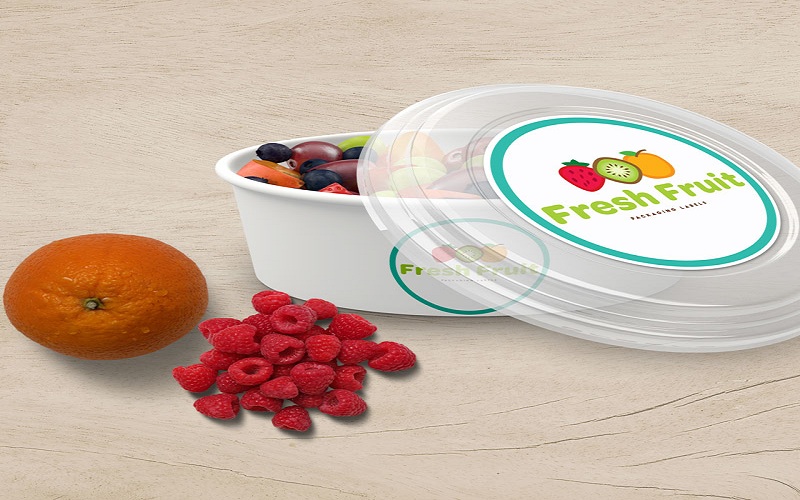
How Do Ecolabel Lubricants Contribute to Environmental Sustainability?
In recent years, there has been a growing emphasis on environmental sustainability across various industries, including the lubricants sector. Ecolabel lubricants have emerged as a viable solution for businesses seeking to reduce their environmental footprint while maintaining optimal performance. Let us explore how ecolabel lubricants contribute to environmental sustainability, from their manufacturing process to their impact on ecosystems and regulatory compliance.
Understanding Ecolabel Lubricants
Bio-based lubricants are ecolabel lubricants that are environmentally friendly or green lubricants and are formulated with removably sustainable ingredients and manufacturing processes. These lubrication products extend the environmental viability with minimal adverse effects consisting of for instance fossil extraction associated with pollution and habitat destruction in parallel with good lubricant performance and protection for machinery and machine parts. Ecolabel Lubricants are licensed by non-governmental organizations or regulatory bodies through the application of strict environmental conditions, to the effect of guaranteeing that they have met the specified sustainability and performance standards.
Reduced Environmental Impact
The lifespan of ecolabel oil, one of the main determinants of the environmental sustainability of oil, includes the entire process of its development. In contrast to traditional oils not safe for the environment and may use harmful chemicals or additives, ecolabel lubricant labels composition is made from natural biodegradable ingredients, which not only break down easily; but without causing environmental and wildlife problems. Likewise, the production of biolubes entails utilizing renewable resources with energy-saving manufacturing processes which, in turn, decreases the carbon footprint as well as the overall environmental impact.
Improved Resource Efficiency
Ecolabels lubricants are invented to prolong equipment lifecycle by extending engine up-take, reducing faulty operation pressures, and preserving energy distributed. These oils give superior and effective lubrication and protection to the machinery. Through the prevention of plant shutdowns and aiding in technical process optimization ecolabel lubricants both environmental resources are conserved, while the quantity of waste produced reduces and the total operating cost is minimized.
Protection of Ecosystems and Wildlife
Ecolabel lubricants are made so that they are environmentally competent, such that they don’t endanger the ecosystems or wildlife in the case of oil leaks or spills. Concerning liquid lubricants, while traditional and chemical-based ones can cause soil, water, and air pollution with their toxic contents, the ecolabel ones are biodegradable and non-toxic making them disintegrate naturally with no risk to the environment plants, animals, and aquatic animals won’t be harmed.
Consumer Awareness and Demand
As environmental awareness continues to grow among consumers and businesses, there is an increasing demand for sustainable products and practices across all industries, including lubricants. Ecolabel lubricants are gaining popularity as consumers become more conscious of their environmental impact and seek eco-friendly alternatives to conventional products. By choosing ecolabel lubricants, businesses can align with consumer values, enhance their brand reputation, and differentiate themselves in the market as environmentally responsible organizations committed to sustainability.
Key Considerations When Choosing a Food Product Label Maker
Functionality and Versatility
Various aspects should be factored in when selecting a label machine. These should be its functionality and adaptability. Label maker has to offer a broad spectrum of varieties and sizes of labels to fit your products, packages, and variations. In addition to the store branding, will enter the production of labels for jars, bottles, boxes, and pouches. The label maker should have the flexibility for design, printing, filling, and sharing. Moreover, technologies like barcode printing and variable data printing are also innovations that can add more capabilities for creating and adding labels to the maker’s food label.
Compliance with Regulatory Requirements
In the food industry the assurance of consumer safety is instrumental for the building of trust and hence, compliance with regulatory requirements is of great importance. Lacking the functionality of a label maker to meet applicable radix and requirements should always be thought through when choosing one. For instance, packaging compliance will entail following the labeling policy that calls for ingredient information, allergen warnings, nutritional facts, expiration dates, and country of origin labeling. In addition, within the label-maker role, it should also provide the users with an opportunity to incorporate various industry-related emblems and certifications, to highlight the conformance with additional product quality and safety regulations.
Consumerization of People and Branding
Besides the main options to consider are the customization options which are another critical factor to select a food product label maker. Self-adhesive labels, with the specification of the brand’s demands and the signifier of the product identity, are input by the producers of food and thus are able to achieve a differentiating effect in the market. Search for tag creators that provide a whole set of options such as different designs, fonts, colors, and graphics, as well as offering an opportunity to add the logo, branding elements, and advertising materials. Furthermore, the label machine must have the ability to provide rapid printing so that in case there is a need for some changes in product offer then it is not a big problem because they just have to adjust the system setting.
Printing Quality and Durability
Interesting print quality and durability are needed so that labels can be readable, good-looking, and useful in the long run. The label developer should apply printing technology like thermal transfer and digital printing that provides legible, clean, and smudge-free labels that withstand environmental stresses including temperature changes, moisture, and air blows while still staying intact. Moreover, in that sense the label maker must give options by using strong label materials and glue that are fitting and suitable in different packaging surfaces or storage environments and they never get lost or unreadable throughout the product’s lifetime.
Conclusion
There is no doubt that the eco-labels for the production of lubricants are of the highest significance for the industry as they decrease the environmental impact of the operations reduce resource consumption, maintain the ecosystems protect the wildlife, guarantee regulatory compliance, and meet the demand of the consumers for the products with low negative impact on the environment. The increase in the business focus on sustainability in their operations and supply chains determines ecolabel lubricants as a viable option to green the earth’s environmental footprint, without compromising on performance and reliability. An organization that adopts ecolabel lubricants not only sacrifices its commitment towards a sustainable world but also manages to achieve cost savings, attains operational efficiency, and achieves an improved brand image.


